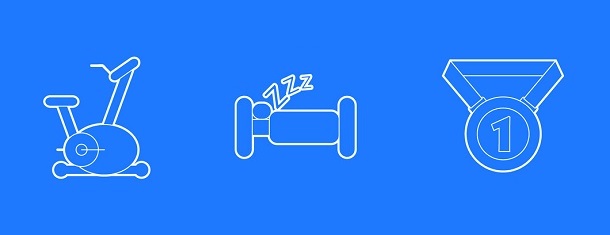

It harnesses the tremendous scientific and clinical resources of ACSM to develop articles reviewing recent and important advances in the field that have clinical relevance. Is unique in its focus entirely on the clinical aspects of sports medicine.

“We need to ensure our youth athletes are getting adequate amounts of sleep, and there is evidence to support this claim.”Ĭlick here to read “How Sleep Impacts Performance in Youth Athletes.” “Trends like early-morning training schedules, two-a-day practices, and late night practices and competitions come at the expense of good sleep habits – as well as leaving kids less time to socialize and do homework,” Dr. He notes that an emphasis on increasing training workload to improve skill and performance may adversely affect young athletes in other ways. “The message for young athletes is, getting recommended sleep can improve your performance,” Dr. Inadequate sleep might be a risk factor for bony stress injuries (such as stress fractures).Īlthough it has been suggested that using smartphones or other electronic devices before bed can lead to impairments of sleep or athletic performance, one recent study found no such effects. Poor sleep may be linked to obstructive sleep apnea among college football linemen. Levels of the stress hormone cortisol are increased after competitive matches, leading to reduced sleep time and quality. Young athletes with symptoms of insomnia may be at increased risk of burnout, along with a higher risk of dropping out of their sport due to injury. Studies of napping and other sleep interventions show inconsistent effects on athletic performance. Sleep deficits may also place young athletes at risk for injury and illness. “tudies consistently demonstrate that lack of recommended sleep results in poor sense of well-being, increased perceived training load, and poor placement in competitions,” Dr. Some papers report that inadequate sleep has significant effects on reaction time, strength, speed, cognitive learning, and decision-making. However, elite-level teen athletes of both sexes seem to get more sleep – possibly related to higher sleep need due to higher training loads.Īlthough studies vary, the evidence suggests that getting less-than-recommended sleep leads to decreased performance on the playing field. Most studies find that young athletes get less sleep than non-athletes they may sleep longer on the weekends, trying to make up their “sleep debt.” The evidence suggests that young female athletes sleep less than their male counterparts. For example, one study found that more than 90 percent of teen gymnasts get less than 8 hours of sleep per night. : 9 to 12 hours for children aged 6 to 12 years and 8 to 10 hours for adolescents aged 13 to 18 years. Recommended guidelines for sleep duration Generally, the evidence suggests that they don’t meet Rested and ready? Youth athletes need more sleep to do their bestįaced with competing demands including school, sports, and social life, young athletes tend to put off sleep in favor of other activities. He believes that the trend toward more-intensive training might contribute to a lack of adequate sleep in in young athletes. Mott Children’s Hospital, University of Michigan, Ann Arbor, author of the new review. “There’s growing evidence to suggest that youth athletes don’t get required amount of sleep, and that this negatively affects their performance,” comments Mark F. The journal is published in the Lippincott portfolio by , according to a paper in the November issue of Most young athletes don’t get enough sleep – and that may significantly affect their sports performance


 0 kommentar(er)
0 kommentar(er)
